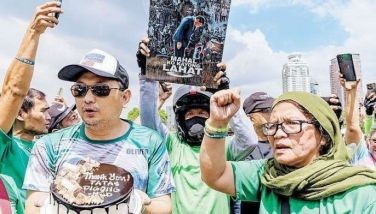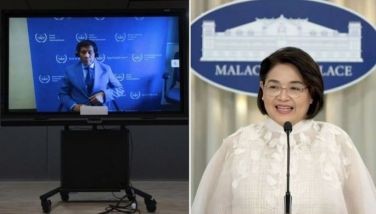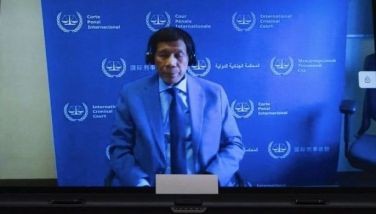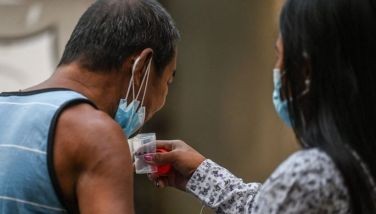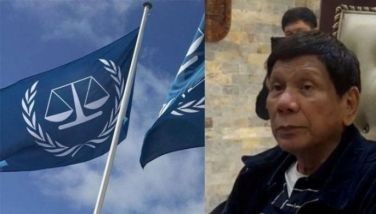Palace claims Filipinos may be barred from participating in ICC
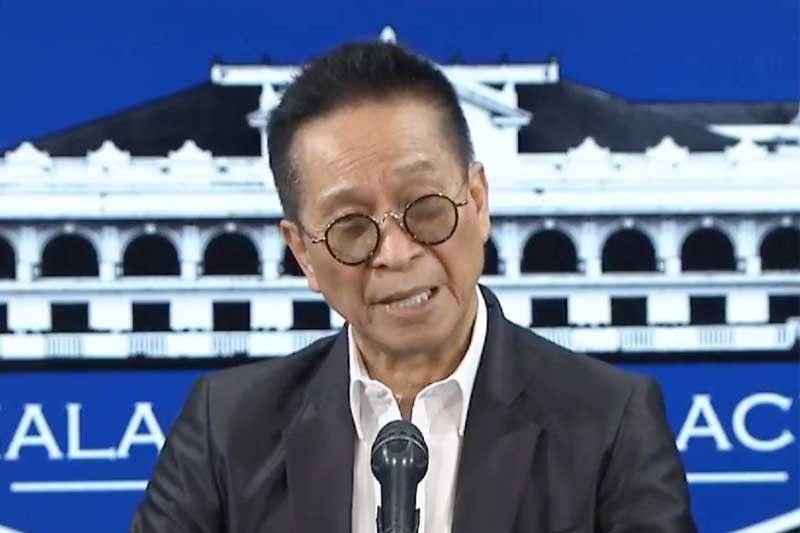
MANILA, Philippines — The government may bar Filipinos from leaving the country to participate in any formal investigation that might be conducted by the International Criminal Court (ICC) on human rights violations under the Duterte administration – including the killing of thousands in the conduct of his war on drugs.
Presidential spokesman Salvador Panelo made this clear in an interview yesterday with The Chiefs on Cignal TV’s One News. He also said ICC would be committing an assault on the country’s sovereignty if it insists on sending a team to the Philippines to investigate Duterte.
When asked about the administration’s possible response if the investigation is done outside the Philippines, Panelo said the government has the right to stop its citizens from leaving the country to take part in an activity that is against their own country.
“If the purpose of leaving the country is to participate in an illegal activity, that would be illegal,” Panelo said.
He added that the government may cancel the passports of those who manage to testify outside the Philippines.
When reminded that taking part in an investigation abroad is part of a citizen’s right to free expression, Panelo said it is, “but if you’re going to testify wrongly against a particular person then you are committing perjury and that is a crime.”
ICC prosecutor Fatu Bensouda and other ICC personnel would be barred from entering the country should they insist on investigating Duterte and his bloody war on drugs.
Panelo said ICC should realize it does not have jurisdiction over the country’s domestic affairs.
“With respect to ICC personnel who will come here and violate our sovereignty, then they will be subjected to deportation. They do not have jurisdiction over us from the very start,” he said. “More so, if they believe that we have withdrawn, then what basis do they have to continue?”
Bensouda had said despite the Duterte administration’s withdrawal from the ICC, the international tribunal based in The Hague would still proceed with its investigation on the alleged killing of over 20,000 alleged drug offenders and innocent civilians in the conduct of the war on drugs.
Panelo also said should the ICC official continue to pursue such probe, she would be violating not only the sovereignty of the Philippines, but also the Rome Statute.
“The Rome Statute says when there is a preliminary investigation and/or proceeding relative thereto, then the ICC can proceed,” Panelo explained, adding there was no preliminary investigation yet.
The Palace official also rebuffed the statement of Assembly of State Parties of the ICC president O-Gon Kwon that ICC is an effective way to promote accountability among heads of state.
“I disagree. We have already pointed out that in this country we have a judicial system which is robust and functional and very effective,” he said.
“I do not think so. Even other powerful countries share the same sentiment that ICC has weaponized human rights in the fight against drugs,” he said.
Panelo also maintained that the ICC’s agenda is to politically persecute heads of state.
“It has been politically persecuting heads of state. And I think what this prosecutor is doing validates the accusation,” he added.
Panelo also stressed the Philippines has a robust judicial system, capable of prosecuting local crimes.
“Anybody can file any complaint against any incumbent official. Even this President after he steps down from office, if he indeed violated any provision of law, he will be accountable,” he said.
Vice President Leni Robredo, meanwhile, decried as “unfortunate” the Philippines’ withdrawal from the ICC.
“It’s unfortunate, because there’s a reason why we became part of it,” Robredo said in an interview in Dagupan City. She also warned the Philippines’ move would have “many implications.”
She maintained the Philippines was one of “very active” nations that created the framework for the ICC.
“We knew that creating a framework would be good – that state parties would follow the basic tenets not just of human rights but of many more such as protection of freedom and liberties,” Robredo, a lawyer, said.
“What are the implications? Do we no longer believe in that? Or what’s worse is, do we no longer believe that it’s important to fight for the rights of every Filipino?” she said.
A militant group of overseas Filipino workers (OFWs), for its part, voiced full support for an ICC probe on the human rights situation in the Philippines.
“It is the right of the most oppressed sectors of Philippine society to expose the truth about their conditions and express their outrage at their government who is responsible for the systemic injustices they are facing every day,” Migrante International said in a statement.
“It is not a crime for people’s organizations to actively engage in advocacy, education and lobbying efforts and utilize international platforms such as the United Nations to lift up their grave concerns,” the group added.
According to Migrante, it is not wrong for Filipinos to form partnerships with other international organizations advocating human rights.
The group criticized the Armed Forces of the Philippines and the Presidential Communications Operations Office for trying to silence what it called the growing people’s movement in the Philippines. – Edith Regalado, Helen Flores, Mayen Jaymalin, Eva Visperas
- Latest
- Trending



















